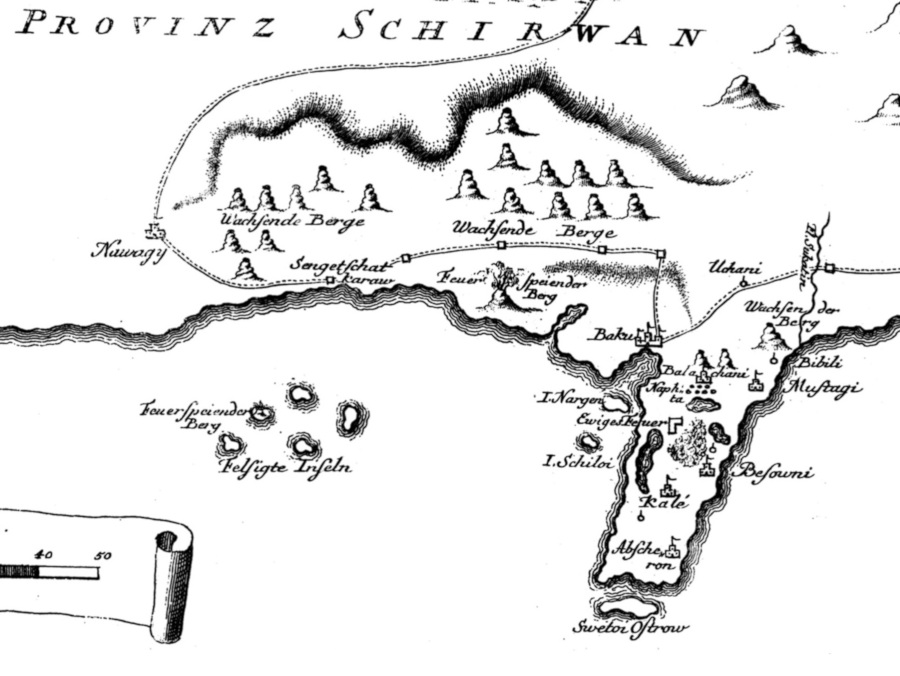A new article by Elena Lisitsyna
A new article by the project participant Elena Lisitsyna provides a case study on the production of knowledge about crude oil as a medical resource by a Prussian physician J.J. Lerche in the18th-century Russian Empire

As the main tasks of the 18th-century Russian medicine were the support of the army and navy, and the protection of the empire from massive diseases, the regular research of local medical phenomena and resources was not clearly distinguished. The present paper attempts to reveal the ways in which medical knowledge was produced and communicated on the example of crude oil exploration by a Prussian physician in Russian service, Johann Jacob Lerche (1708–1780). Despite the fact that both his wide-ranging medical activities in different areas of the Russian empire and his extensive written heritage drew only fragmentary attention from scholars, they reflect the physician’s expertise in the research of naturalia which he manifested while performing his professional duties. Crude oil was one of the most remarkable mineral wonders of the Pre-Caspian region which Lerche visited twice (1732–1735, 1745–1747). On the basis of his three published accounts, which contain information on petroleum qualities and its practical application, the author investigates how the Baku crude oil, a natural object, was reinvented as a medical resource by an 18th-century state physician in the Russian empire. It is done through the consideration of the processes of world discoveries in the Age of Enlightenment, and the indigenous practices of the oil use. Finally, the significance of the author’s professional position as a state physician appears to have influenced the argumentation of curative qualities of petroleum and the advantages of its location.
The full text is available on the journal's website.
